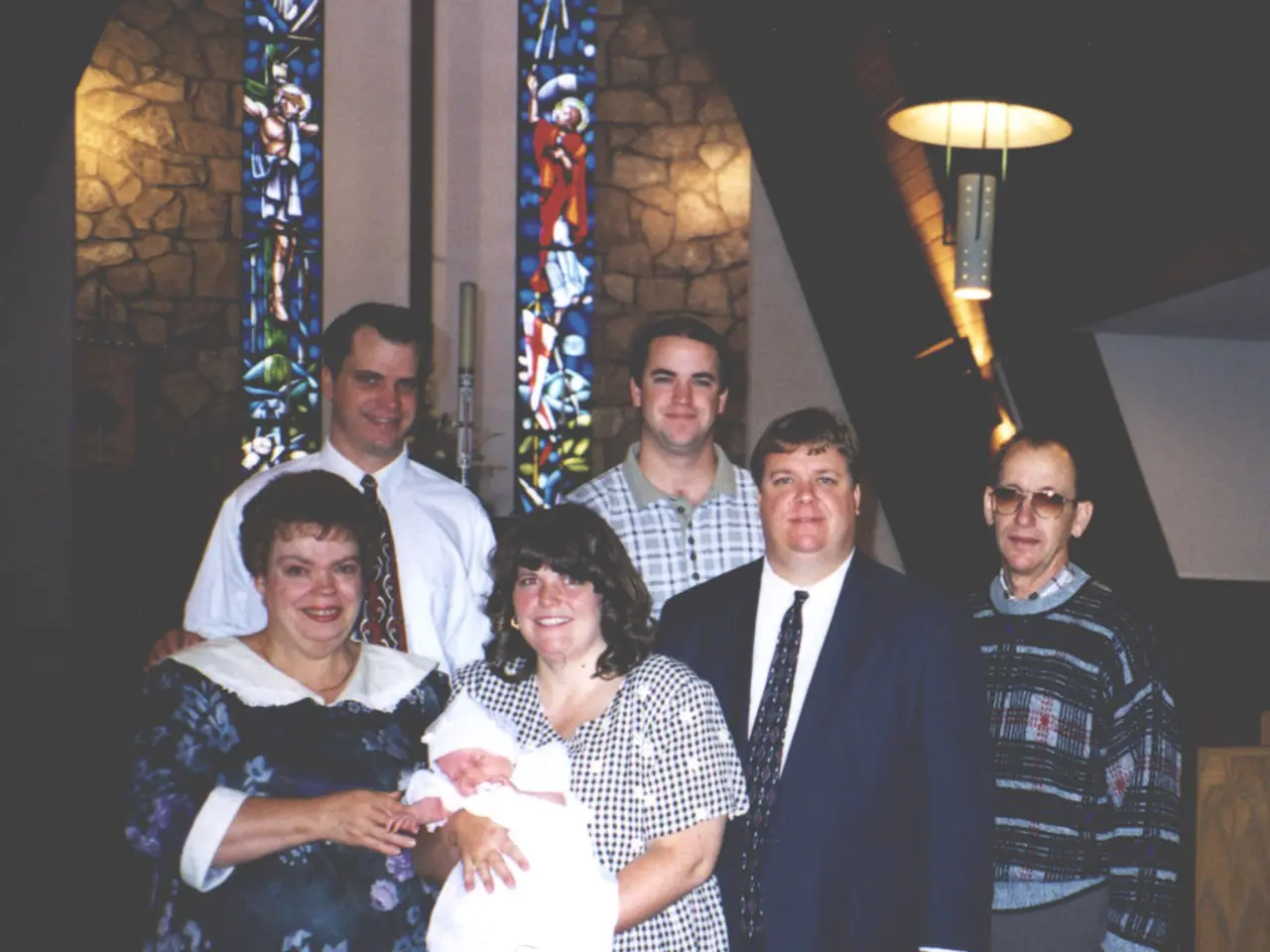Contestation between Beatriz and El Salvador
In the heart of Central America, El Salvador enforces one of the strictest abortion bans worldwide, prohibiting abortion under all circumstances, including risks to the woman's life, rape, or fetal inviability [1][2][4]. This absolute ban, deeply embedded in the country's law and constitution, has led to a series of tragic events and ongoing legal and social struggles.
The case of Beatriz, a national symbol in the fight for reproductive rights in El Salvador, serves as a poignant example. Diagnosed with lupus, a chronic autoimmune disease, Beatriz suffered from health complications after her first pregnancy and worsened with a second pregnancy in 2013. The fetus in her second pregnancy was diagnosed with a brain malformation and was not viable. Despite this, Beatriz was denied a medically necessary abortion, leading to her case being taken to the Inter-American Court of Human Rights. Tragically, Beatriz died in 2017 at the age of 27 due to complications from a motorcycle accident and an infection that her weakened body could not fight [3].
Delmy Cortez, Beatriz's mother, remembers the negative comments about her daughter on social media and a pro-life organization sending a basket with a small blanket while Beatriz was in the hospital. The Inter-American Court of Human Rights ruled that El Salvador had violated Beatriz's rights by denying her a medically necessary abortion, but did not question the total ban on abortion [1]. Delmy Cortez continues the fight for reproductive rights in El Salvador, promising to achieve what Beatriz wanted: no other woman living what she went through.
The ban causes delays and judicialization of medical care, forcing health providers to act within legal uncertainty and often at odds with medical ethics [1]. Women endure high physical and mental anguish, including carrying nonviable pregnancies to term. The restrictive environment discourages healthcare providers from offering timely or adequate care, increasing structural violence against women and violating multiple human rights norms [1][2].
Human rights advocates and organizations urge El Salvador to decriminalize abortion, particularly for rape victims or life-threatening circumstances, but the government continues to reject such recommendations [2]. There is strong pressure from international bodies and human rights groups to restore judicial independence, uphold reproductive rights, and protect human rights defenders in the country [2].
The broader region, including neighboring Honduras and Nicaragua, similarly maintains strict abortion prohibitions, placing El Salvador in a context of regional resistance to abortion rights [4]. Meanwhile, advocacy and support networks in Latin America work to improve access to safe abortion in countries where it is legal, underscoring the contrast with El Salvador's total ban [3].
The ongoing struggles surrounding El Salvador's total abortion ban are not limited to the political and legal spheres. Satirical publications have been shared with the aim of attracting young people, and there have been reports from "Le Devoir" in El Salvador about losing a baby leading to prison and women being told they had killed their babies [5].
As the legal and social struggles continue, the international community watches closely, hoping for a change in El Salvador's policies that will prioritise women's health and rights over ideological restrictions.
- The denial of a medically necessary abortion for chronic kidney disease patient Beatriz, despite the non-viability of the fetus and risks to her life, highlights the ongoing struggle for reproductive rights in El Salvador.
- The absolute ban on abortion in El Salvador, culminating in a tragic sequence of events and judicialization of medical care, leads to health providers grappling with legal uncertainties and ethical dilemmas in the realm of women's health and mental health.
- Advocates for human rights, justice, and women's health push for decriminalizing abortion in life-threatening circumstances and for rape victims in El Salvador, as part of a larger movement advocating for reproductive rights in the region.
- While neighboring countries like Honduras and Nicaragua mirror El Salvador's strict abortion prohibitions, advocacy and support networks in Latin America work to promote health and wellness by improving access to safe therapies and treatments, contrasting sharply with El Salvador's total ban on abortion.




